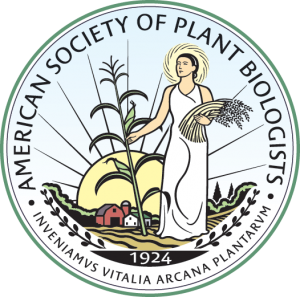Plant Science Literacy
Resources for fertile thinking & fruitful communication
My Life as a Plant—activity & coloring book for plant biology
Sally Sunflower and her pals lead readers into a fun first foray through the 12 principles of plant biology. Youngsters will enjoy a variety of explorations to better understand the world of plants. Perfect for PreK-2 and emergent readers; enjoyed by all ages. The 12 principles align with Next Generation Science Standards.
Download free PDF versions of the book. Or purchase bound copies from Amazon.
• Any modest proceeds go to ASPB Education & Outreach initiatives.
• Need a bulk order? Want to volunteer to do a translation? Contact Winnie Nham (education@aspb.org)
Purchase bound copies from Amazon.
Picture Books for Plant Biology
Success with science requires mastering science content and processes. It also demands literacy for learning and communicating. When science content and language mastery are explored in unison, both skill sets flourish (see research recap), with the language used to learn and communicate science. Picture books foster success at all levels of learning readiness and across learning styles. Book art gives sophisticated visual examples and new perspectives on complicated, abstract concepts. Images spur interest in reading new vocabulary and gaining deeper, wider knowledge.
Here’s a taste of the available trade titles for exploring:
- Seeds, Germination & Dispersal
- Plant Growth, Function & Uses
- Ecosystems
Check back for resources for exploring the 12 principles of plant biology with trade books.
Do You Speak Plant?
The English language is a verdant garden of words and phrases rooted in plants. Use these 7 evergreen guidelines to help students cultivate vocabulary, communication skills, and critical thinking for their narrative writing and science literacy. Suitable for middle school & up.
ASPB Journals – Free Access for High Schools & Public Libraries [US-only]
The Society offers complimentary access to The Plant Cell and Plant Physiology to interested public libraries and public or private high schools in the United States. Scientists and teachers or librarians can collaborate to support student use of the journals to:
- improve general scientific understanding;
- infuse science curriculum with timely, vetted information; and
- inspire student research.
Questions? Ready to set up your journal access? Email Winnie Nham (education@aspb.org)
Currently, the program is for US-based high school teachers and public librarians only.
Resources to Support Student Use of Primary Literature
- How to Read a Scientific Paper (geared for use in high schools)
- Case Study to Accompany How to Read a Scientific Paper

